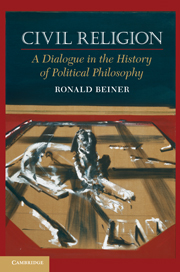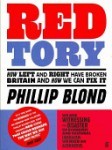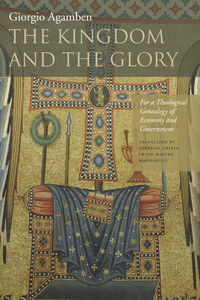
Glory doesn’t work. Amen.
This condensed assertion and acclamation get at the heart of Giorgio Agamben’s The Kingdom and the Glory, the second part of the second part of his Homo Sacer project (whose volumes include Homo Sacer, State of Exception, and Remnants of Auschwitz). The Kingdom and the Glory’s subtitle, For a Theological Genealogy of Economy and Government, allusively explains the Foucaultian-feeling rhythms according to which this text pulses—rhythms that animate the Homo Sacer project from its inception but which come to archaeological fruition in The Kingdom and the Glory. In Foucaultian fashion, The Kingdom and the Glory’s initial six sections trace a meticulous, albeit particular, conceptual genealogy through early and medieval Christian theologies (a genealogy replete with long quotations that serve as evidential support) whose impetus comes, indirectly, from an intertextual conversation between Erich Peterson and Carl Schmitt, which recurs throughout Agamben’s text. More directly, the impetus comes from Agamben’s explicit aim of catching, via theology, “a glimpse of something like the ultimate structure of the governmental machine of the West in the relation between oikonomia and Glory” (xii)—a relation he casts in State of Exception in terms of auctoritas and potestas. […]
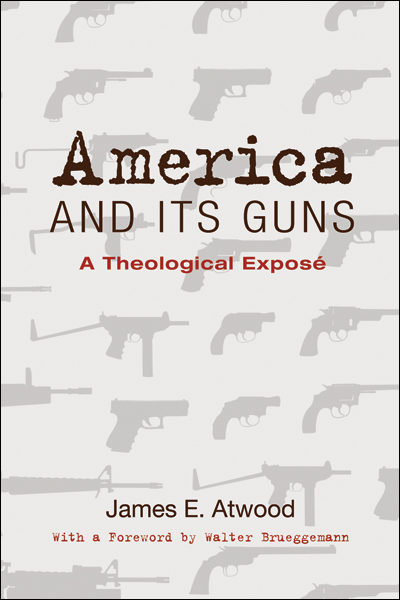
As the golden calf gave the ancients a false sense of security, many twenty-first century Americans look for security in weapons. When our leaders are absent or fail us; when our God is invisible and from all appearances is absent from our lives; when we don’t know how we can keep going; when we are consumed by our fears and feel threatened by those who are not like us, those are the moments when new idols are imagined and fashioned and desperate people give them their ultimate concerns, devotion, and focused attention.
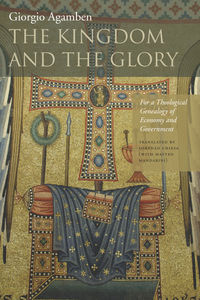
For years now, one of Giorgio Agamben’s major concerns has been the fracture that lies at the heart of modern humanity (i.e. humanity’s sense of sovereignty). This is something he has described in a variety of contexts as that which divides the experience of something from one’s knowledge of it (cf. his Infancy and History). Due to such a fracture, we are no longer able to experience life as we ought to. The task of poetry (as it deals with our experiences) is subsequently forever divided from that of philosophy (that which deals with our knowledge). Such divisions, I would add, have since become the preeminent focus of Agamben’s work, taking him on a quest against all forms of representation that would sever the ‘thing itself’ from its image. These thoughts, moreover, have taken him toward an inspection of similar divisions said to lie at the base of our perceptions of the divine (i.e. God’s sovereignty). […]
Talk of legacy has been abuzz in the news lately as the American presidential race continues to gear up. This was even more true in first century Palestine. Without a legacy, without a tradition to follow in, a person was lost—outcast. […]
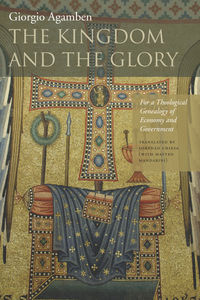
The Kingdom and the Glory: For a Theological Genealogy of Economy and Government, which continues Agamben’s interest in the history of sovereignty and the exception, brings the discourse of theology to the forefront of questions about the nature of modern political economy and government. Agamben’s claim is that theology has left its indelible signature on and therefore deeply animates modern life. But how? […]
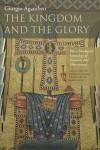
The field of political theology has not yet been rigorously defined. It is more a field of affinities than a clearly delineated disciplinary space—a kind of “zone of indistinction” between theology and political theory where the terms of debate are still very much up for grabs. Even as the range and shape of political theology as a field of inquiry remain somewhat inchoate, however, there are points of reference that already seem more or less obvious or obligatory. The work of Giorgio Agamben is surely one of them, a status that The Kingdom and the Glory will just as surely reinforce. […]

Every week on the lecture trail I meet progressives who are demoralized and/or infuriated by Barack Obama’s performance as president. They insist that they will not work for him again or even vote for him. Many have signed petitions saying as much. They are finished with Obama.
Often they assume that I agree, since I have criticized many of Obama’s policies throughout his presidency, and I have been deeply involved in the Occupy movement. But my progressive friends and allies are overlooking that many of them made this very mistake in 2000, that their charge of betrayal is exaggerated, and that Barack Obama, for all his temporizing and capitulation, is in important ways America’s most progressive president since FDR. Moreover, electing a more compelling human being to the White House is probably impossible in this country. It is too soon to give up on our first African American president. So I wrote The Obama Question: A Progressive Perspective [….]
